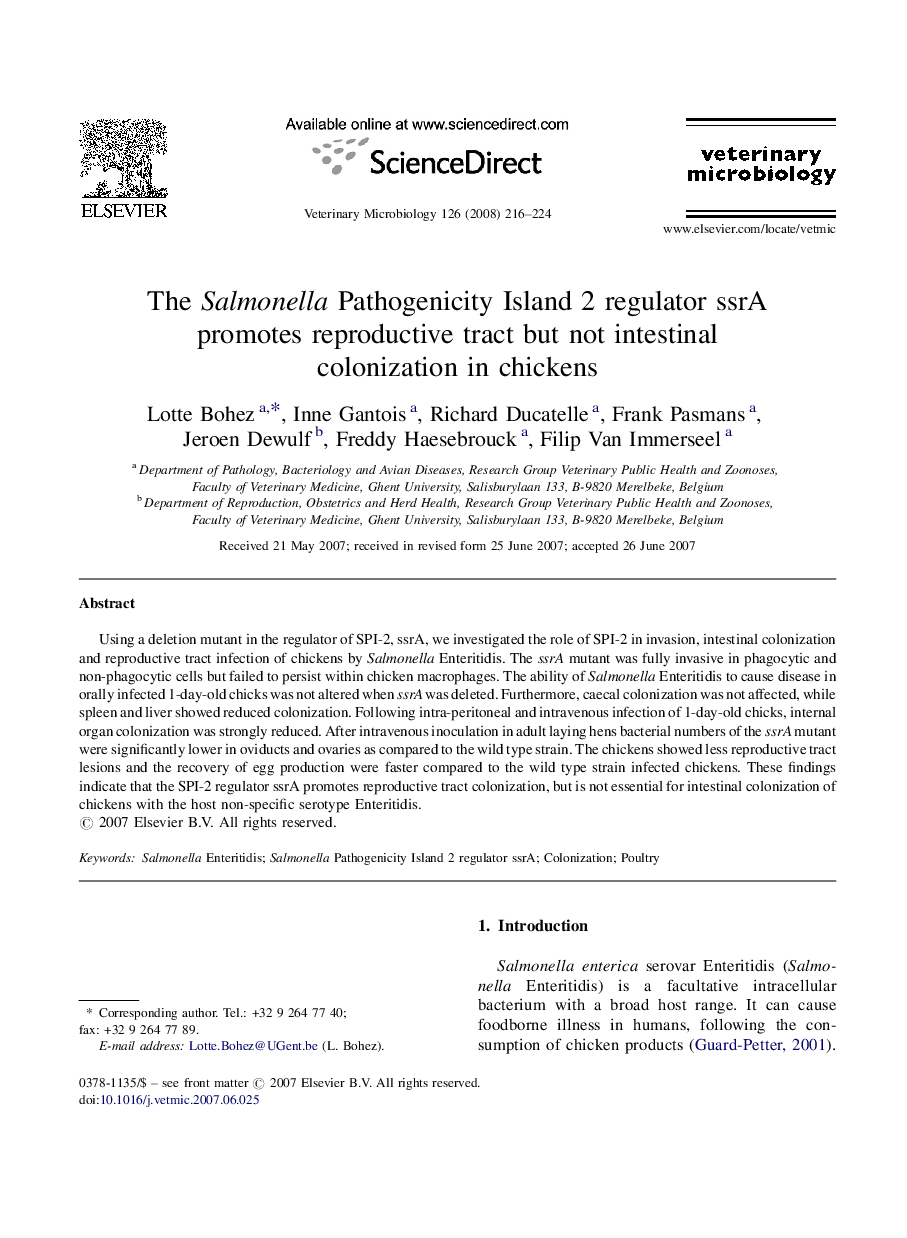| Article ID | Journal | Published Year | Pages | File Type |
|---|---|---|---|---|
| 2469037 | Veterinary Microbiology | 2008 | 9 Pages |
Using a deletion mutant in the regulator of SPI-2, ssrA, we investigated the role of SPI-2 in invasion, intestinal colonization and reproductive tract infection of chickens by Salmonella Enteritidis. The ssrA mutant was fully invasive in phagocytic and non-phagocytic cells but failed to persist within chicken macrophages. The ability of Salmonella Enteritidis to cause disease in orally infected 1-day-old chicks was not altered when ssrA was deleted. Furthermore, caecal colonization was not affected, while spleen and liver showed reduced colonization. Following intra-peritoneal and intravenous infection of 1-day-old chicks, internal organ colonization was strongly reduced. After intravenous inoculation in adult laying hens bacterial numbers of the ssrA mutant were significantly lower in oviducts and ovaries as compared to the wild type strain. The chickens showed less reproductive tract lesions and the recovery of egg production were faster compared to the wild type strain infected chickens. These findings indicate that the SPI-2 regulator ssrA promotes reproductive tract colonization, but is not essential for intestinal colonization of chickens with the host non-specific serotype Enteritidis.
